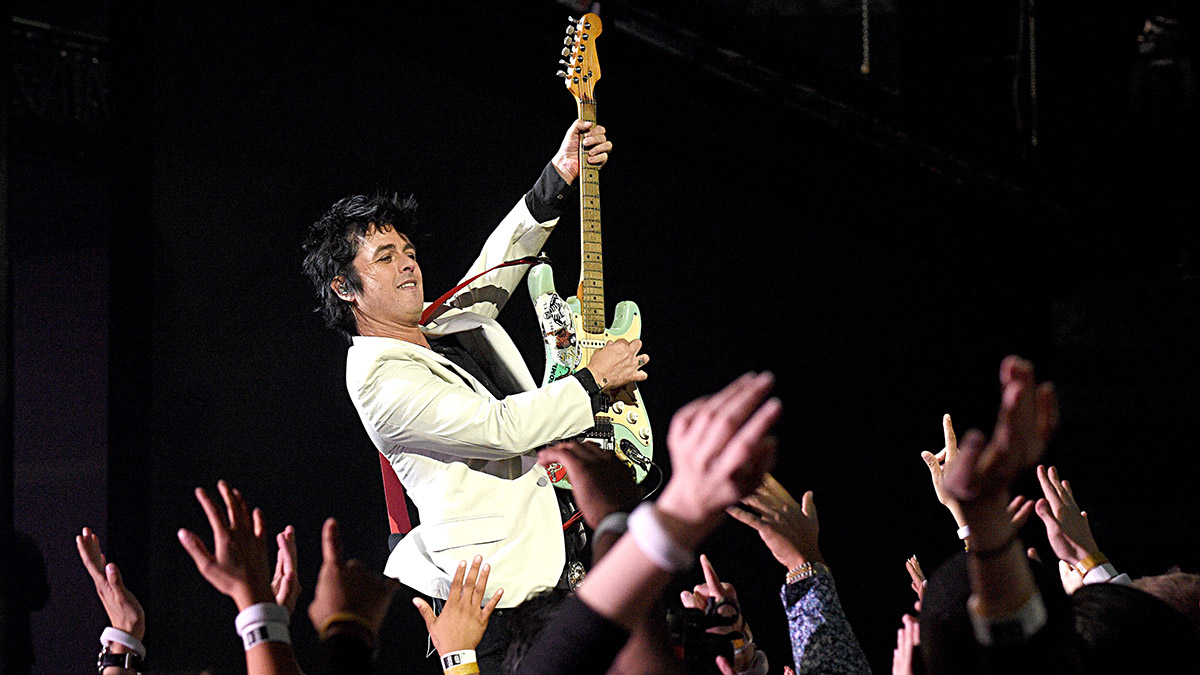5 ways to get more out of your power chords
Power chords are a rock rhythm guitar fundamental you need to know inside and out. Here are 5 options to spice up your hard-rocking jams

The humble two-note power chord is so effective that you can listen to entire albums of rock, metal, and punk without hearing another kind of chord. Even bands that wouldn’t tour together in a million years – Nirvana and Guns N’ Roses, Napalm Death and McBusted – are united by the awesome kerrang of the power chord.
Traditional chords are major and minor triads (meaning they have three notes). The middle note is called the ‘third’ (because it comes from the third note of the relevant scale) and gives the chord its major or minor character.
Power chords leave the third out, which means they almost always sound right whatever other harmony is going on. Triads can sound pretty dodgy with distortion, as all the extra harmonic overtones generated start to clash with each other. Simpler power chords sound great with gain, making them the go-to shapes for guitars needing crunch.
As long as your guitar is in tune and you’re not accidentally bending a string sharp, it’s hard to go wrong with power chords, but some players make them sound extra awesome. The first thing to try is just hitting one power chord through a dirty guitar amp and listening to the sustain. Stadium bands like Kiss often let their chords sustain and it can sound much bigger than strumming constantly.
Once you can make that sound good, check out some other pro secrets. James Hetfield and Billie Joe Armstrong both use rapid downstrokes and switch rapidly between palm muting and accented, unmuted chords, although they get quite different results. AC/DC, and all who follow them, use open power chord shapes that sound amazing ringing out through a loud amp. Eighties metal players take things up a notch by adding vibrato and harmonics for more extreme effects.
Example 1. Use accents!
Throwing in occasional unmuted stabs can make a palm muted chug much more effective. Find a picking hand position where you can quickly drop the heel of your hand down by the bridge for the muted notes.
Example 2. Three notes are better than two!
Green Day’s Billie Joe knows the two-note power chord is great, and the three-note one is 50% better! This just adds the root note an octave higher, but as you’ll see later it opens up some cool possibilities.
All the latest guitar news, interviews, lessons, reviews, deals and more, direct to your inbox!
Example 3. Try open shapes!
For AC/DC-style open chords, wrap your thumb over the neck to choke the low E string when you’re not playing it. For the G5, your second finger should naturally mute the A string as you fret the low E.
Example 4. Add vibrato!
Dio’s Vivian Campbell used vibrato chords to hide his Les Paul’s dodgy intonation, and it’s become a metal trademark. Pull the strings down gently and make sure you release them fully back to neutral so the chord sounds in tune.
Example 5. Add pinched harmonics!
Zakk Wylde takes things a step further with pinched harmonics. Angle your pick towards the floor and brush the strings with the side of your thumb as you strum through to create the harmonics, then add vibrato for the full effect.
Jenna writes for Total Guitar and Guitar World, and is the former classic rock columnist for Guitar Techniques. She studied with Guthrie Govan at BIMM, and has taught guitar for 15 years. She's toured in 10 countries and played on a Top 10 album (in Sweden).






